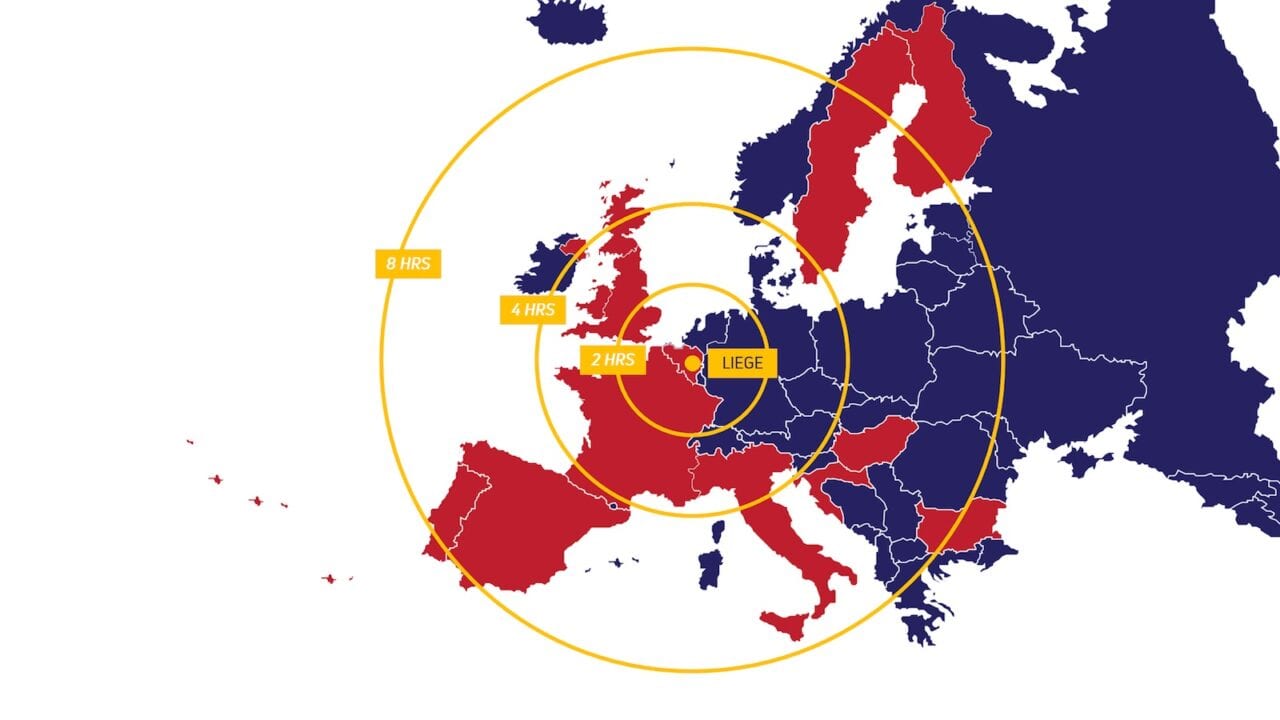
Dronamics has established partnerships with five airports in Europe where it plans to operate cargo drone operations from starting in 2022. (Dronamics)
Dronamics, a cargo drone developer and operator, has established agreements with the first five airports in Europe where it plans to operate on-demand drone cargo deliveries and is preparing for flight testing to begin next year, the London-based company’s CEO and co-founder Svilen Rangelov told Aviation Today in a recent interview.
Rangelov first established the startup with his brother in 2014, with the goal of using their Black Swan unmanned aircraft to perform same-day air cargo deliveries for time-critical shipments. Now, as their drone inches closer to European Union Aviation Safety Agency (EASA) type certification, they plan to begin deploying the enabling equipment that will allow them to create what they describe as “middle-mile” cargo deliveries with a focus on remote areas.
The first five airports, unveiled in a Nov. 30 press release, include private airports and airport groups operating more than 35 airports in 11 European countries. These include regional leaders in air cargo such as Liège Airport (Belgium), which serves as Alibaba’s European Hub, and Brescia Airport (Italy), the national hub for the Italian postal system. Other agreements were established with a select number of airports at strategic locations throughout the continent including Skövde Airport in Sweden, Seinäjoki in Finland, and Croatia’s Osijek Airport.
Over the next year, Dronamics will start deploying its “droneport” equipment at these airports.
“On a high-level, the droneport equipment set consists of cameras, antennas, and ground control equipment that can fit in a small room,” Rangelov told Aviation Today. “Those airports we announced are where we intend to operate from starting in 2022 and we’re having discussions with a number of others as well, as we’re looking to grow the network even further.”
Rangelov said some of the main customers Dronamics is targeting include freight forwarders, e-commerce companies and pharmaceutical providers who need fast and cheap air cargo delivered to underserved routes at a low cost. The airports will serve as hubs for new route developments, while enabling new business opportunities for the network’s members, both directly in the form of increased cargo throughput and expanded ground operations, and indirectly in the form of increasing access to the local economy for same-day pan-European flights, according to Dronamics.

Dronamics’ future concept of operations vision for “droneports.”
“The partnership with Dronamics is key for us in this critical time of high demand for air freight,” Massimo Roccasecca, Group Cargo Director at SAVE Group, the operator of Brescia Airport said in the Dronamics release. “Earlier this year the whole world saw the effects that border closings and strict quarantine measures had on global supply chains, as the world was and still is combating the COVID-19 pandemic. But when you have a way to move cargo without traveling with it, supply chains become lockdown-proof.”
Belgian Air Navigation Service Provider (ANSP) Skeyes is also working with Dronamics and Liège Airport on regulatory requirements for Dronamics as well.
A key part of the future concept of operations envisioned by Dronamics will be the use of its Black Swan cargo drone. Black Swan features a payload capacity of 350 kg and a range of up to 2,500 km. Rangelov believes this would lead to a reduction in cost and emissions of up to 80 percent compared to the use of manned aircraft to deliver cargo.
“We envision three main types of cargo – e-commerce, cool-chain pharma, and industrial spare parts such as [Aircraft on Ground] AOG spares or, automotive. Initial operations will have human operators at each droneport manage the taxi, take-off and landing, while the cruise flight is automated. We’re developing some of the ground station equipment ourselves and using off-the-shelf equipment for the rest, as our goal is to also achieve a reliable, but cost-efficient operation at scale,” Rangelov said.

A small-scale prototype version of the Black Swan cargo drone being developed by Dronamics.
There are two main European Commission regulations 2019/945 and 2019/947 that Dronamics is developing its drone and delivery network around. The two regulations essentially take a risk-based approach to operators like Dronamics and use three categories to classify drone operations including open, specific, and certified.
Dronamics, due to the semi-autonomous nature of its operations and the size and performance of the Black Swan, is going for the certified category. Both regulations become applicable for EASA-registered drone operators next month.
“We’re finishing the full-scale prototype (the small-scale is the one on the website) in Q1, and we’ll proceed with ground and flight tests throughout the rest of 2021,” Rangelov said.